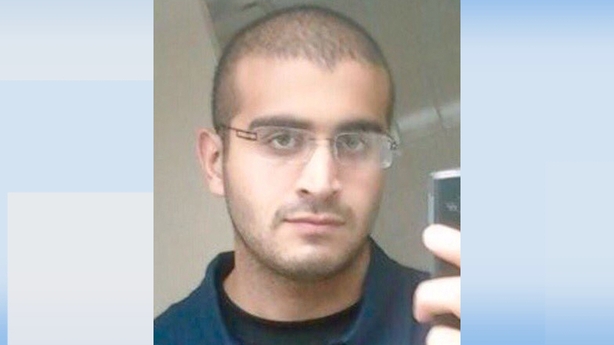The US Senate, voting largely along party lines, has defeated a Democratic measure aimed at expanding background checks for individual gun sales, a blow to reform efforts in the wake of the Orlando massacre.
The amendment, put forward by Senator Chris Murphy who staged a 15-hour marathon Senate speech pressing for common sense gun control in the aftermath of the attack on a Florida gay club, failed to clear a procedural hurdle, going down 44 votes to 56.
A Republican plan for keeping terrorism suspects from buying weapons by establishing a 72-hour review period for delaying the transactions has also failed to be passed.
The Senate fell seven votes short of clearing the way for approving the measure. The Senate also blocked a more sweeping Democratic proposal to keep guns out of the hands of people on terrorism watch lists.
Meanwhile, it has emerged that the Florida nightclub killer called himself an "Islamic soldier" and threatened to strap hostages into explosive vests in calls with police during the three-hour siege, according to transcripts released by the FBI.
From inside the gay Orlando nightclub, the gunman, Omar Mateen told police negotiators to tell America to stop bombing Syria and Iraq and that was why he was "out here right now."
The conversations shed more light on the possible motivations of Mateen, who on 12 June killed 49 people and injured 53 in the deadliest mass shooting in modern US history.
In a first call he made to a 911 emergency operator, Mateen said "I pledge allegiance to Abu Bakr al-Baghdadi, may God protect him, on behalf of the Islamic State," referring to the head of Islamic State.
Authorities believe Mateen, a US citizen of Afghan descent, acted alone in the 12 June rampage, with no help from Islamist militant networks. The 29-year-old security guard was killed by police after more than three hours in the club.
The FBI and US State Department released partial transcripts of the four calls with the emergency operator and crisis negotiators earlier today, omitting the gunman's references to the leader of Islamic State, saying they did not want to provide a platform for propaganda.
But they later reversed their decision and released the unredacted version after a wave of criticism from US House of Representative Speaker Paul Ryan, Florida Governor Rick Scott and other political leaders.
Mateen's conversations were made public as police sought to fend off criticism that they may have acted too slowly to end a three-hour standoff at the Pulse nightclub in Orlando.
Mateen threatened to detonate a car rigged with bombs and to strap hostages into explosive vests, according to transcripts of the 911 calls he made while police tried to rescue people trapped in the club.
No explosive vests or bombs were found in the club or the suspect's car, however, the FBI said.
"You people are gonna get it and I'm gonna ignite it if they try to do anything stupid," Mateen said during one of the calls,according to the FBI transcript.

"While the killer made these murderous statements, he did so in a chilling, calm and deliberate manner," FBI Assistant Special Agent in Charge Ron Hopper told a news conference.
Mateen also said he was wearing an explosive vest like thek ind "used in France," apparently referring to the deadly attack in Paris last November by Islamic militants, the transcript said.
Speaker Ryan had called for the full text to be released and accused the Obama administration of censoring references to Islamic State.
He said the decision to edit the transcript was "preposterous" and that everyone knew Mateen was a radical Islamic extremist inspired by so-called Islamic State.
"We also know he intentionally targeted the LGBT community," the top elected Republican official said. "The administration should release the full, unredacted transcript so the public is clear-eyed about who did this and why."
The FBI and Justice Department said the omissions had caused an "unnecessary distraction" and that was why they eventually decided to release the unredacted transcripts and summaries of the calls.

